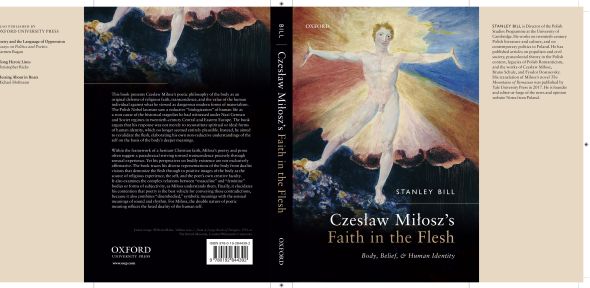
16 December 2021
Associate Professor in Polish Studies Dr Stanley Bill has published a new book on the poetry of Czesław Miłosz with Oxford University Press - entitled Czesław Miłosz's Faith in the Flesh: Body, Belief, and Human Identity.
The book presents Miłosz's poetic philosophy of the body as an original defense of religious faith, transcendence, and the value of the human individual against what he viewed as dangerous modern forms of materialism. The Polish Nobel laureate saw the reductive 'biologization' of human life as a root cause of the historical tragedies he had witnessed under Nazi German and Soviet regimes in twentieth-century Central and Eastern Europe. The book argues that his response was not merely to reconstitute spiritual or ideal forms of human identity, which no longer seemed plausible. Instead, he aimed to revalidate the flesh, elaborating his own non-reductive understandings of the self on the basis of the body's deeper meanings. Within the framework of a hesitant Christian faith, Miłosz's poetry and prose often suggest a paradoxical striving toward transcendence precisely through sensual experience. Yet his perspectives on bodily existence are not exclusively affirmative. The book traces his diverse representations of the body from dualist visions that demonize the flesh through to positive images of the body as the source of religious experience, the self, and his own creative faculty. It also examines the complex relations between 'masculine' and 'feminine' bodies or forms of subjectivity, as Miłosz represents them. Finally, it elucidates his contention that poetry is the best vehicle for conveying these contradictions, because it also combines 'disembodied', symbolic meanings with the sensual meanings of sound and rhythm. For Miłosz, the double nature of poetic meaning reflects the fused duality of the human self.




